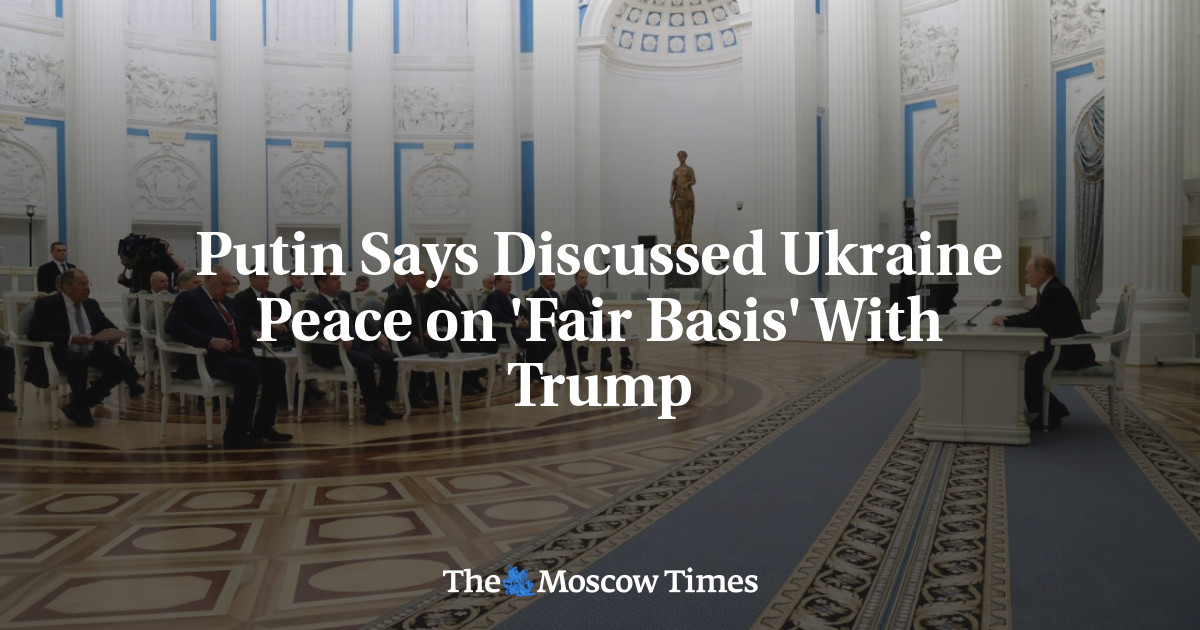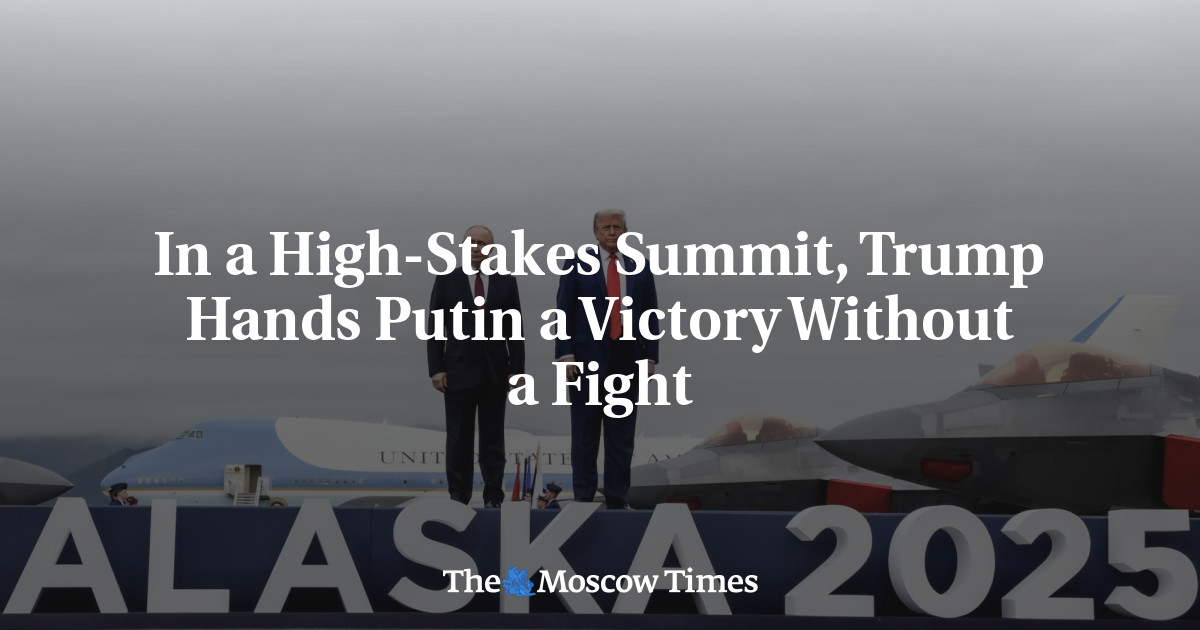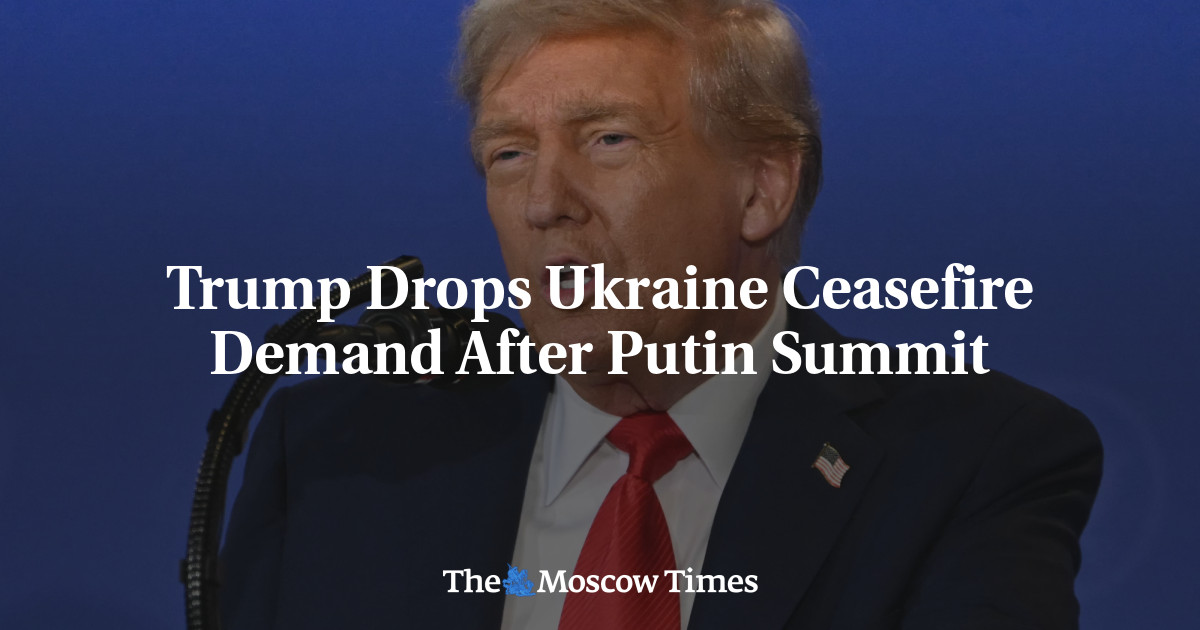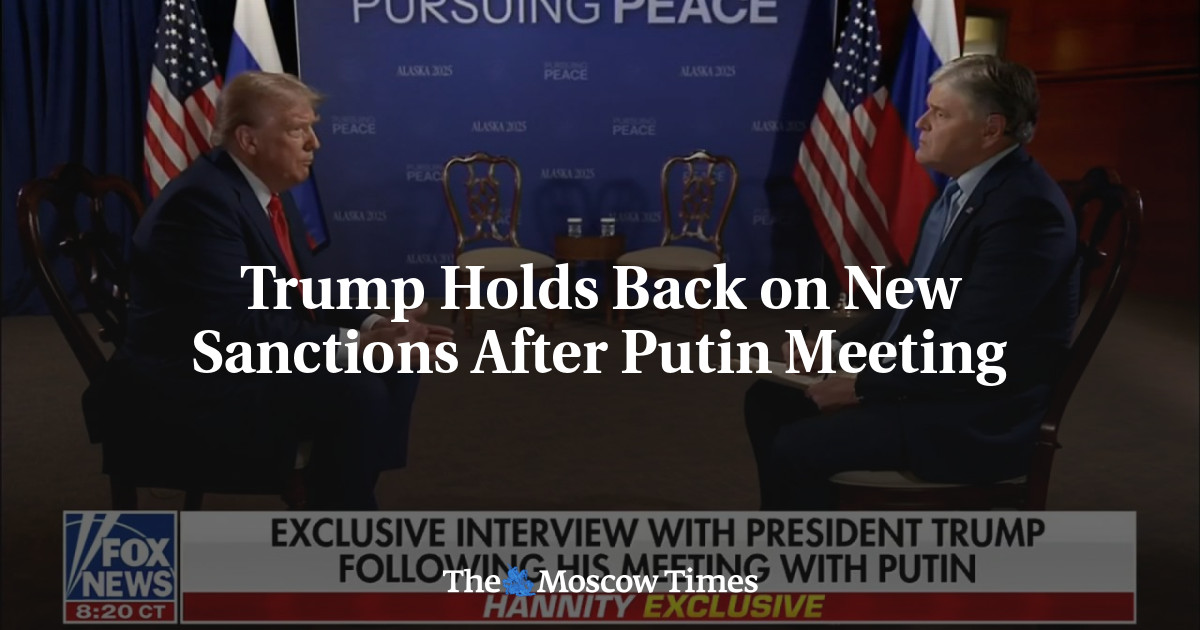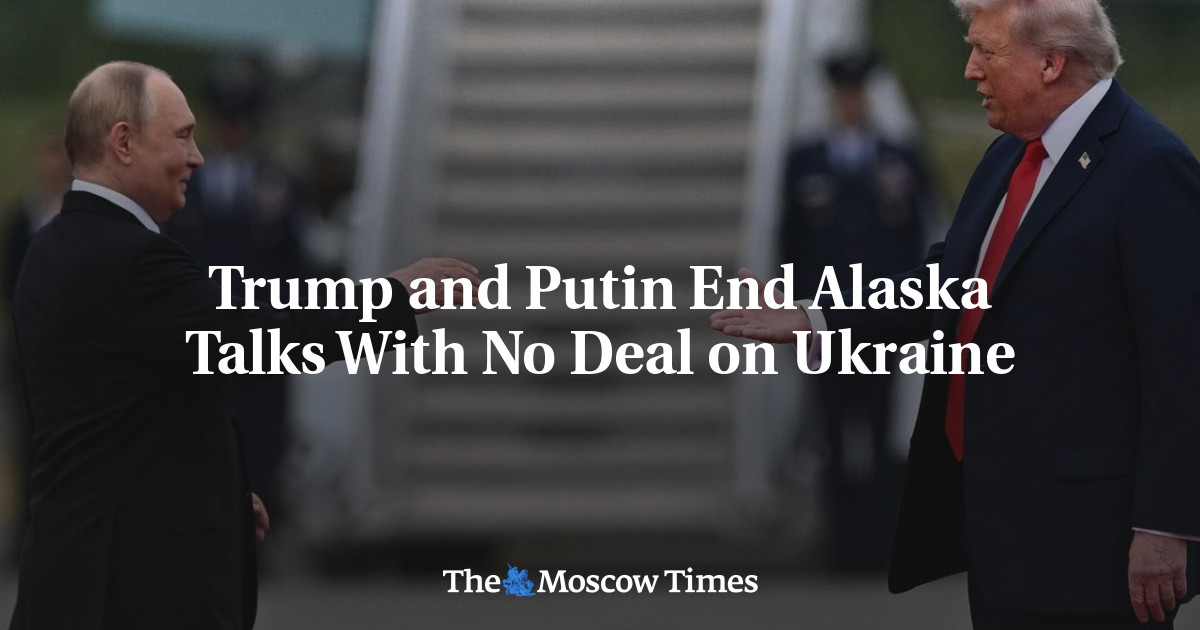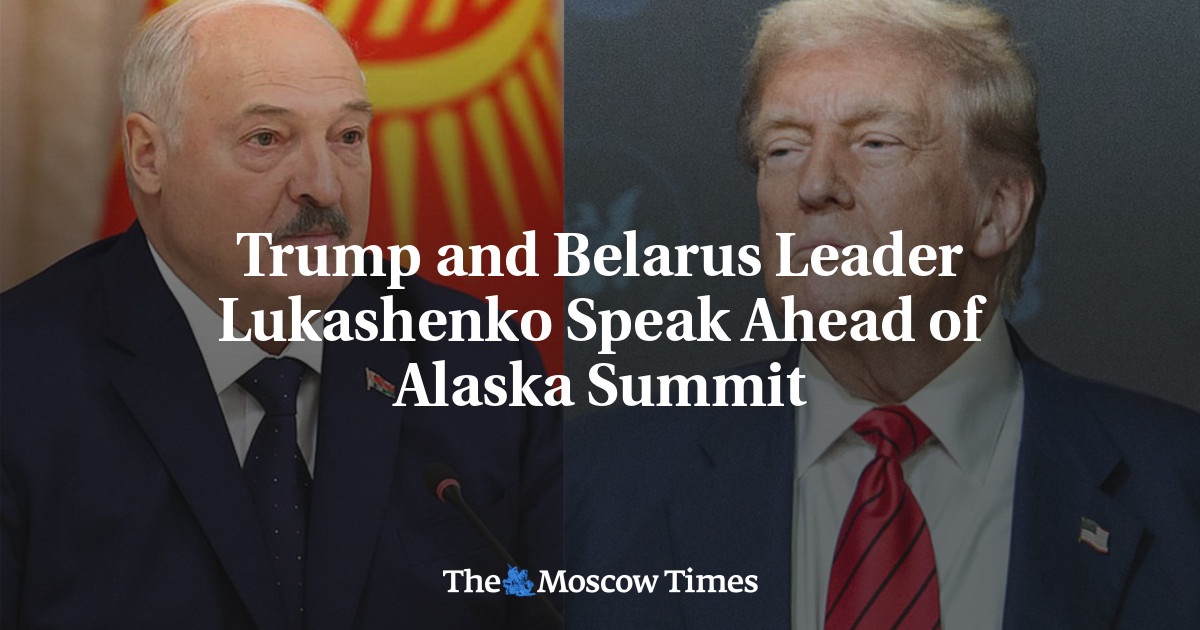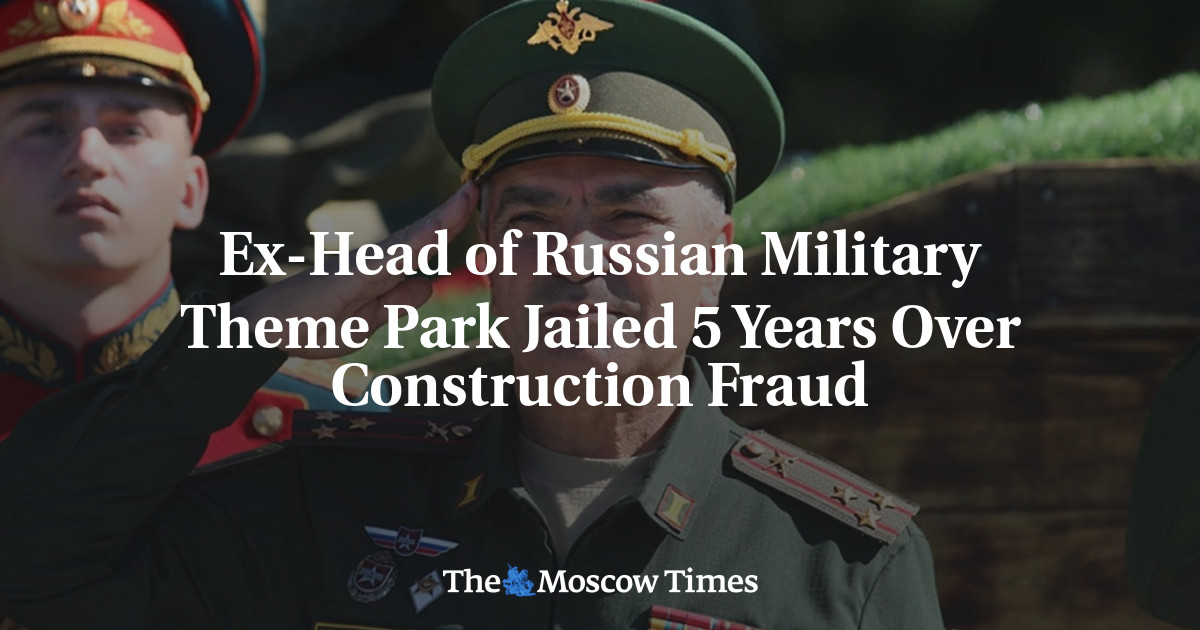Russia’s stock market slid after talks between Vladimir Putin and Donald Trump ended sooner than expected and without tangible progress on the war in Ukraine.
The Moscow Exchange index dropped 2%, erasing about 130 billion rubles ($1.6 billion, according to spot foreign exchange market data published by Reuters) in market capitalization.
Shares of state energy companies led the decline, with Gazprom falling 2.9%, Rosneft 2.6% and Sovcomflot nearly 3% by 11:07 a.m. Moscow time Saturday. Metals producers and state banks also retreated, while flagship airline Aeroflot slid 2.9%.
The ruble weakened on forex markets, with the dollar rising 0.5% to 80.15 rubles and the euro up 0.9% to 93.76.
Trump said he would delay for “two or three weeks” a decision on whether to impose tough new sanctions against Moscow, which he had threatened if the talks collapsed. But investors appeared unmoved.
“Markets expected more — a ceasefire, some kind of agreements, even memoranda of understanding or at least talk of lifting sanctions. None of that happened,” said investment banker Yevgeny Kogan.
According to Axios, Putin rejected a temporary ceasefire and instead pushed for a comprehensive peace deal that would address all of his demands.
For investors, “the only thing that would help markets is a clear diplomatic success. Anything else makes things worse,” said Andrei Khokhrin, head of Ivolga Capital.
Kogan noted that the talks had been billed as lasting six to seven hours and that Russia’s finance minister had joined the delegation, suggesting that economic issues would be on the table.
“But it didn't get to that point. Not a good sign,” he said.
Analysts now warn that Russian equities could lose another few percentage points in the coming days, while the dollar may climb to 81-82 rubles.
A Message from The Moscow Times:
Dear readers,
We are facing unprecedented challenges. Russia's Prosecutor General's Office has designated The Moscow Times as an "undesirable" organization, criminalizing our work and putting our staff at risk of prosecution. This follows our earlier unjust labeling as a "foreign agent."
These actions are direct attempts to silence independent journalism in Russia. The authorities claim our work "discredits the decisions of the Russian leadership." We see things differently: we strive to provide accurate, unbiased reporting on Russia.
We, the journalists of The Moscow Times, refuse to be silenced. But to continue our work, we need your help.
Your support, no matter how small, makes a world of difference. If you can, please support us monthly starting from just $2. It's quick to set up, and every contribution makes a significant impact.
By supporting The Moscow Times, you're defending open, independent journalism in the face of repression. Thank you for standing with us.
Continue
![]()
Not ready to support today?
Remind me later.
 (1).png)
 7 hours ago
1
7 hours ago
1
